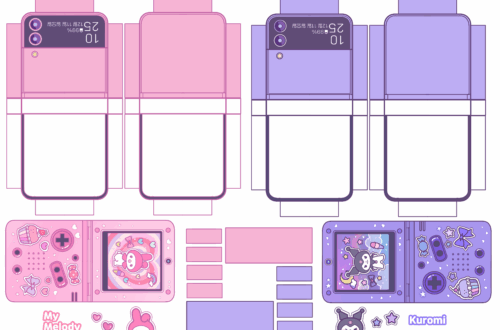These are resources designed to aid in handwriting development. Typically offered in digital formats, they present letterforms, both uppercase and lowercase, with guidelines or dotted lines for users to trace. These tracing guides offer a physical means of practicing letter formation, enhancing fine motor skills. For example, a child learning to write the letter “A” might use one presenting an “A” with dotted lines to follow, gradually solidifying the motor patterns necessary for independent writing.
The significance of such tools lies in their ability to provide a structured and repetitive method for learning to form letters correctly. This practice helps develop muscle memory, which is crucial for fluent and legible handwriting. Historically, similar methods, involving physical stencils or manually drawn guidelines, were used to teach penmanship. Current digital versions offer convenience, accessibility, and often include varied fonts and letter styles to adapt to different learning needs and preferences.
The subsequent sections will delve into specific applications, different types available, practical considerations for selection, and methods for creating personalized versions. This provides a comprehensive overview of how these resources are utilized to foster handwriting proficiency.
Frequently Asked Questions About Letter Tracing Resources
The following addresses common inquiries regarding digital letter tracing resources designed to assist in handwriting development. It aims to provide clear and concise answers based on established pedagogical principles.
Question 1: At what age is it appropriate to introduce letter tracing exercises?
The optimal age generally ranges from three to five years old, coinciding with the development of pre-writing skills and fine motor control. Introduction should be guided by the child’s interest and readiness.
Question 2: What are the key benefits of employing this method for handwriting instruction?
The primary benefit is the structured and repetitive practice provided, facilitating the development of muscle memory and correct letter formation. This can improve legibility and writing fluency.
Question 3: Are there potential drawbacks to relying solely on tracing for handwriting instruction?
Over-reliance on tracing may hinder the development of independent letter formation skills. It is crucial to transition to freehand writing exercises to promote autonomy.
Question 4: What features should be considered when selecting these kinds of resource?
Consider resources that offer varied font styles, letter sizes, and guidance lines. The inclusion of directional arrows indicating stroke order is also beneficial.
Question 5: How can this method be adapted for learners with specific learning difficulties, such as dyslexia?
Adaptations may include using larger font sizes, high-contrast colors, and simplified letter forms. Multi-sensory approaches, such as tracing letters in sand or using textured materials, can also be beneficial.
Question 6: What is the best way to integrate letter tracing activities into a comprehensive handwriting curriculum?
Letter tracing should be used as a supplementary tool to reinforce letter formation, complementing other activities such as pre-writing exercises, copying exercises, and freehand writing practice.
In summary, tracing letters can be an effective tool for handwriting development when used appropriately and integrated into a well-rounded approach. Careful consideration should be given to the learner’s individual needs and progress.
The next section explores the specific applications of these resources in educational settings.
Effective Use of Printable Letter Tracing Resources
The following outlines key considerations for maximizing the benefits derived from letter tracing resources. These recommendations are intended to guide educators and parents in implementing these tools effectively.
Tip 1: Select Age-Appropriate Resources: Ensure the complexity of the letters and the tracing guides align with the developmental stage of the learner. Overly complex letterforms can frustrate younger learners, while overly simplistic forms may not adequately challenge older learners.
Tip 2: Emphasize Proper Grip and Posture: Before initiating tracing activities, verify that the learner maintains a correct pencil grip and posture. Incorrect grip and posture can hinder the development of fluid handwriting skills, regardless of the tracing resource used.
Tip 3: Focus on Stroke Order: Instruct the learner to follow the correct stroke order for each letter. Consistent adherence to proper stroke order promotes efficient and legible handwriting. Many resources include directional arrows to aid in this process.
Tip 4: Monitor Pressure and Control: Observe the learner’s pencil pressure during tracing. Excessive pressure can lead to fatigue and impact handwriting quality. Encourage a light, controlled touch.
Tip 5: Integrate with Other Handwriting Activities: Letter tracing should serve as a component of a broader handwriting curriculum. Supplement tracing activities with freehand writing exercises, copying exercises, and activities that promote fine motor skills, such as drawing and coloring.
Tip 6: Provide Regular Feedback: Offer constructive feedback on the learner’s letter formation, stroke order, and overall handwriting quality. Positive reinforcement can motivate learners and encourage improvement.
Tip 7: Vary Letter Styles and Fonts: Expose learners to a variety of letter styles and fonts to enhance their understanding of letter formation and improve their ability to recognize letters in different contexts.
By adhering to these guidelines, educators and parents can leverage tracing letters as a valuable tool for fostering handwriting proficiency.
The subsequent section will provide a concise summary of the benefits and limitations of this method.
Conclusion
The exploration of printable trace letters reveals a method offering structured practice in handwriting development. These resources facilitate the initial acquisition of letter formation skills through repetitive tracing, aiding in muscle memory development and reinforcing correct stroke order. Their value lies in providing a scaffolded approach to handwriting, particularly beneficial for those beginning their literacy journey or requiring targeted intervention.
However, their effective utilization necessitates careful consideration. Printable trace letters serve as a component within a comprehensive handwriting program, not a replacement for independent writing practice. Integrating these resources with other handwriting exercises, such as freehand writing and copying, and adapting them to individual needs, maximizes their potential. Ongoing monitoring and assessment of progress are crucial to ensure that these tools contribute meaningfully to improved handwriting skills and foster confident, independent writing abilities.
